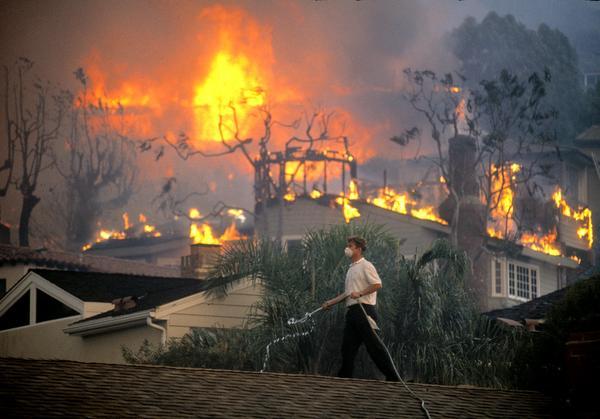Humans have a tendency to cling to things that give them a sense of power or security over situations that are out of their control. This is why it’s common to see people respond in odd ways to crises despite the fact that they rarely do any good. A couple of good stereotypical examples are when people use a garden hose to put out a large fire or sandbags to protect their property from being flooded.
While these may seem like completely-reasonable reactions during the heat of the moment, they also take precious time and energy away from finding better alternatives. Consequently, it’s important to evaluate our responses to disasters in order to ensure that we are targeting our preparedness efforts in the right direction.
Sandbags are not Dams

We recently experienced flooding in our area that only occurs about once a generation. Forecasters sounded the alarm days before the rains came, and residents did what they could to prepare for the worst. However, a significant amount of time and energy was dedicated to filling and distributing sandbags. One thing about sandbags is that they can work under certain circumstances, but they are essentially useless when it comes to creating a real barrier of protection against rising water on a large-scale.
They are also more-effective at protecting roads than homes, especially ones with basements. Water will still get in, and while sandbags may be marginally-helpful at slowing the rate of flooding, homeowners still find themselves bailing out once the water recedes. A better option is to admit defeat long before floodwaters rise in the first place.
This attitude can help people to channel efforts toward gathering important items and valuables. It’s a good time to arrange things in the home so they won’t be damaged by water. There’s also time to find a place to stay, plan on how to get to work or school (if possible), and address other practical considerations that will impact life for a few days or weeks afterward.
Garden Hoses Don’t Stop Wildfires

The same could be said of wildfires. Instead of taking time to gather belongings, load up the car and start making plans to deal with being displaced, far too many people are convinced that it’s better to stay home and fight. What’s to be gained by making a last-ditch effort to spray water on a home when it will do almost nothing to prevent the fire from engulfing the structure?
While it’s natural to want to stay and fight to protect our homes, it’s better to accept the gravity of the situation and plan accordingly. Some disasters come with warning, and we should be taking advantage of every second in order to give us the most options once they strike. We all have a natural tendency to try and find ways to have control in out-of-control situations. The problem is that we also tend to target our resources in the wrong direction. This is where good planning and training come into play, and the more you prepare now will help you to orient your natural response in ways that will be more-effective.
